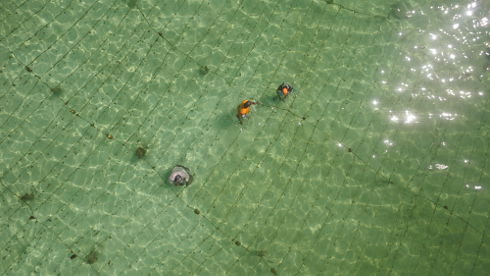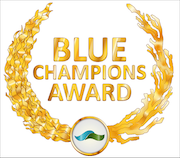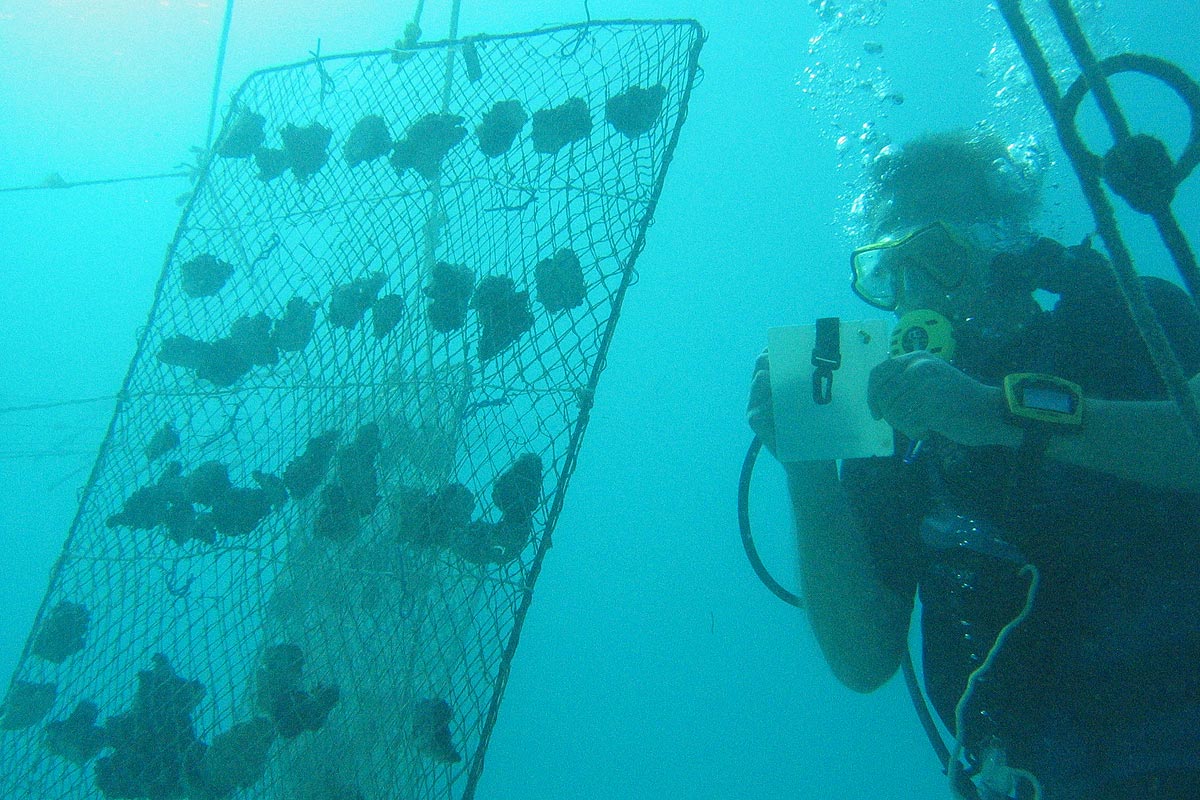Pilot project for the production of menstrual sponges launched
28.03.2018
The menstrual sponge is a durable, additive free natural product and one of the oldest hygiene articles. It is used much like a tampon and has the advantage over conventional disposable tampons or sanitary pads that it can be rinsed and reused for several menstrual cycles.
Reusable products for menstrual hygiene are becoming increasingly popular in developed countries. In Africa many, especially young women cannot afford sanitary pads or tampons while the disposal of toiletries is a major issue.
In 2017 somebody of the NGO ACRA inquired if we would be able to supply menstrual sponges. Our sponges were subsequently tested and shown to be suitable as menstruation sponges. However, the production of menstruation sponges is not attractive for our sponge farmers because the production of larger sponges for the souvenir market is more lucrative. This situation gave rise to the idea of setting up a sponge farm specifically focused on the production of menstruation sponges.
Drone Shot of Spongefarm in Jambiani
In March 2018, after a long struggle for funding, we were finally able to launch a small pilot research project together with the Beach Marine Unit (BMU) in Pangani/Ushungo on the Tanzanian coast where, some time ago we discovered a sponge species that may be suitable for menstrual sponges. But does the species occur in sufficient numbers and can it be sustainably farmed?
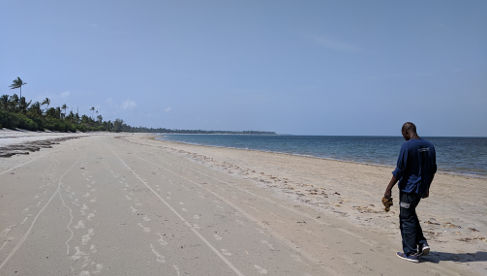
Okala searching sponges / Ushongo beach
Although we were able to find a few dead specimens on the beach after miles of searching, we had no luck discovering life specimens underwater till now. We hired Said and Salimu, two local fishermen from Ushongo to help us find and test-farm sponges. They are trained to recognize sponges with the desired product characteristics and to cultivate them in the newly constructed test farm.
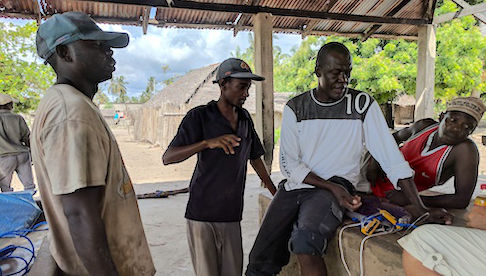
Training of Ushongo fishers by project manager Okala
On our next visit scheduled for July we will be supported by Kerstin from Kasa Divers who is engaged in the NGO Friends of Maziwe which is the driving force behind the Maziwe Island Marine Reserve.
During our second visit, we will also clarify if there is a need for anchor buoys to protect the protected reef around Maziwe Island from anchor damages. Read more about our buoys and moorings project in Zanzibar and Mafia.

